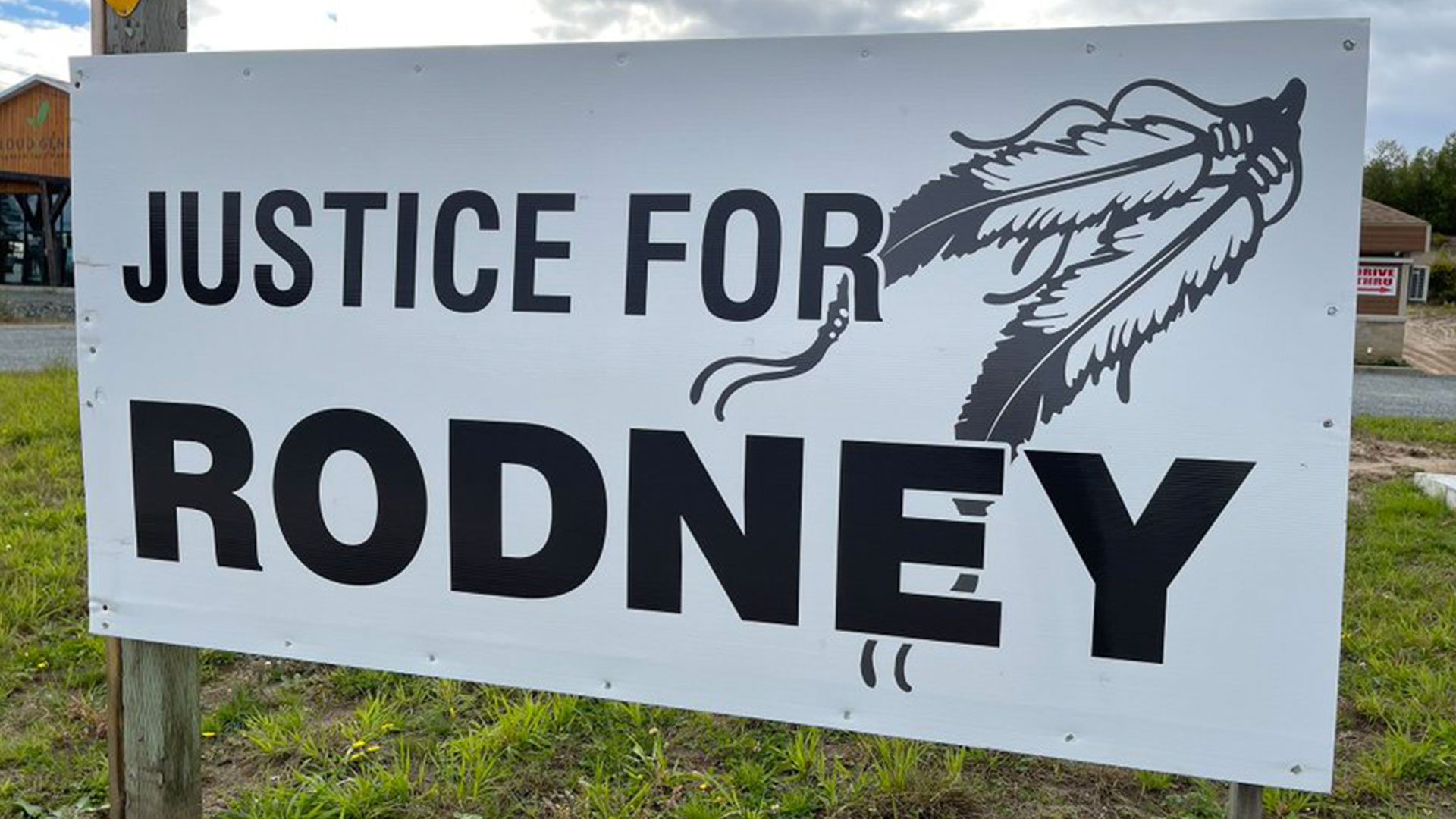The police officer who shot and killed Rodney Levi in northern New Brunswick on June 12, 2020, testified Monday that he feared for his life before shooting him.
RCMP Const. Scott Hait was the first officer on the scene in Sunny Corner, N.B., after police received a complaint about a disturbance in a home.
Hait told a coroner’s jury in Miramichi, N.B., Monday that while driving to the home, he was told there was an unwanted person there who had knives and that so far, no one had been hurt.
Hait said he had not met Levi, from Metepenagiag First Nation, prior to that day but had recognized the name because he had been involved in a recent case about a break and enter.
Hait said when he arrived, Levi was standing on a deck at the home. He said he asked Levi if he wanted to harm himself or was suicidal.
“He said ‘yes,’” Hait told the five-member jury.

The officer said he told Levi he would be able to get him some help and told him to surrender the two knives. He said Levi responded that he had found the knives on the side of the road.
Hait said the 48-year-old was responding to his questions, but that every time the conservation moved to the knives, Levi stopped answering.
He said he wasn’t trained to use a Taser and doesn’t believe more training for RCMP officers is needed.
Becky Levi, Rodney’s niece, was appalled.
“I just wanted to shake him, like this is a human being, Rodney’s gone forever, and you just can’t admit you should have had Taser training or I don’t know, it’s just frustrating.
A second officer, Const. Justin Napke, arrived at the scene and also instructed Levi to drop the knives, but Hait said the man refused.
Napke said he realized it was a mental health call after observing Levi, and testified he was standing further away from Levi.
The lawyer for the inquiry, P.J. Veniot, noted Napke used his Taser instead of his firearm to try to subdue Levi, and Hait who was standing closer used his firearm.
Hait said he drew his pistol, and he said Levi began holding the knives in front of himself.
He said Levi then blurted, “You’re going to have to put a bullet in me.”

Levi was given a third jolt from the Taser, Hait said. The man flinched, dropped one knife, then picked it up and started to hold both of them in a threatening manner, Hait said.
“He started to step toward me,” Hait told the inquest. “I was fearful for my life and those of the people around me.”
Hait said he fired two shots, three to five feet away from Levi. Testimony from a coroner last week said those shots were fatal.
Earlier Monday, the inquest heard the 911 calls and police transmissions from June 12, 2020.
Two members of the MacLeod family, who lived at the home where the shooting occurred called 911. One is heard telling a 911 dispatcher that Levi appeared to be under the influence of something and was armed with two kitchen knives. The other said she wasn’t sure if he was on any substance.
The inquest also heard police radio transmissions of an officer saying, “shots fired, shots fired,” and “we need medics here now.”
The shooting was investigated by Quebec’s police watchdog, the Bureau des enquetes independantes, which submitted a report to New Brunswick prosecutors in December. The BEI probed the killing because New Brunswick doesn’t have an independent police watchdog.
New Brunswick prosecutors determined the officers on the scene believed Levi was using force against them and were justified in shooting him.
On Monday, New Brunswick and Nova Scotia announced they had reached an agreement in principle that would allow Nova Scotia’s Serious Incident Response Team (SiRT) to act as the police oversight body for both provinces.
SiRT is an independent agency that has the mandate to investigate matters such as death, serious injury and sexual assault involving the police.
With files from the Canadian Press









